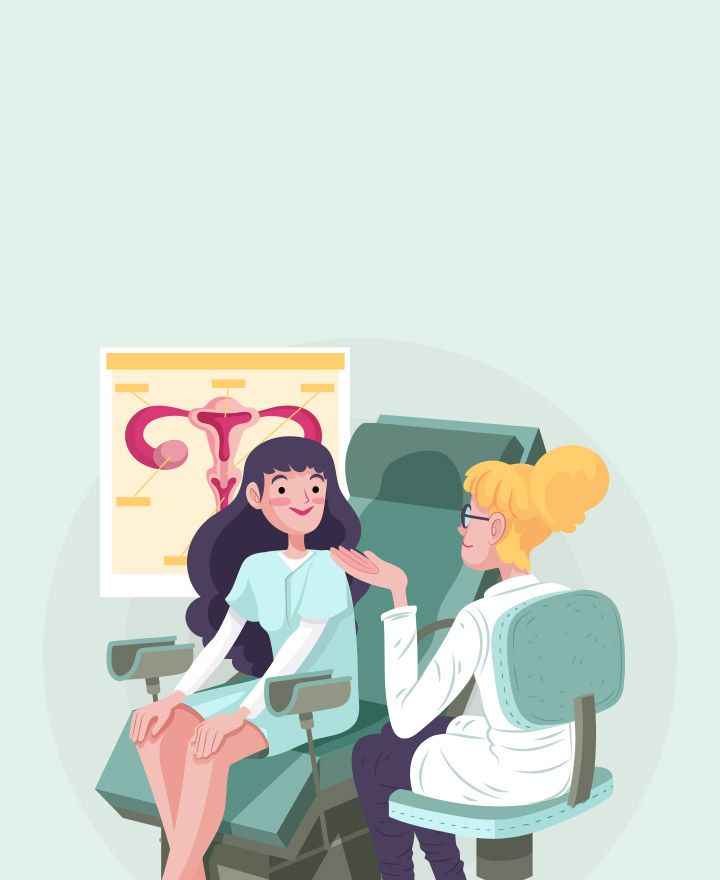

Effects of Hormonal Birth Control on Your Body
Hormonal birth control comes in many forms, like pills, rings, patches, and more. While it is almost 99% effective in preventing pregnancies, it also helps in providing relief from menstrual cramps, endometriosis, etc. Like all other forms of treatment, hormonal birth can also pose a few health risks. So, it is always better to talk to your doctor to check what type of hormonal birth control would suit your body type the best to avoid problems in the future. Read on to know more.
What is Hormonal Birth Control?
Hormonal birth control refers to methods of contraception that use synthetic hormones to prevent pregnancy. It works by altering a woman’s natural hormone levels to suppress ovulation, thicken cervical mucus to prevent sperm from reaching an egg, or thinning the uterine lining to make it less likely for a fertilized egg to implant. In addition to preventing pregnancies, they are also helpful in easing acute menstrual pain and endometriosis symptoms in women. They are several types of hormonal birth control.
Types
Some common types of hormonal birth control methods used today are:
• Hormonal Pills (Oral Contraceptives) –
These pills contain synthetic versions of estrogen and/or progesterone (progestin) and they should be taken daily to prevent pregnancies; different brands of pills are available with differing combinations of progestin and oestrogen.
• Contraceptive Patches –
A small patch worn on the skin that releases hormones (estrogen and progestin) into the bloodstream through the skin. Hormonal patches are placed on the upper back, upper arm, shoulder, abdomen or buttock; these patches should be changed after a week.
• Vaginal Ring –
A flexible plastic ring is inserted into vagina that releases progestin and oestrogen to prevent pregnancy. These should be changes monthly where it is worn for 3 weeks, removed for 1 week for menstruation, and then replaced.
• Shots or Injectable Contraceptive (Depo-Provera) –
A shot or an injection of progestin is administered every 12 weeks to prevent pregnancy.
• IUDs –
These are small T-shaped devices inserted into the uterus by a healthcare provider. Some IUDs release progestin (hormonal IUDs) to prevent pregnancy. IUDs should be changed after 3 to 10 years, depending on the brand.
• Contraceptive Implant –
Hormonal implants are inserted under the skin of the upper arm that releases progestin to prevent pregnancy for several years. The implants should be changed after a maximum of 3 years.
How Hormonal Birth Control Affects the Body?
Hormonal birth control affects the body by primary altering hormone levels, which in turn influences various physiological processes. Some effects of hormonal birth control on the body are:
• Suppression of ovulation i.e. they prevent the release of an egg from the ovary each month.
• Thickens cervical mucus which makes it more difficult for sperm to reach the egg.
• Thins the uterine lining thereby reducing the likelihood of implantation of a fertilized egg.
• Regulation of menstrual cycle, making periods lighter, shorter, and less painful.
• Reduces pain and cramps during menstruation
• Reduced risk of certain cancers and ovarian cysts
• Reduction in acne
• Relive pain and stress in women with premenstrual syndrome (PMS)
• Effective management of endometriosis
• Visible reduction of migraines during menstruation
• Potential Side Effects of Hormonal Birth Control
• Increased blood pressure & risk of blood clots
• Irregular eating and weight gain
• Bloating and nausea
• Increased growth of hair on your face and back
• Changes in cholesterol levels
Myths Vs. Facts
Myth1 –
Hormonal birth control pills will cause fertility issues
Fact 1 –
The contraceptive effects caused by pills and other hormonal birth control methods can be easily reversed within a year of stopping them. So it doesn’t cause any fertility issues.
Myth 2 –
Hormonal pills can worsen mood swings and cause depression.
Fact 2 –
Recent studies show that people taking hormonal contraceptives are not at a high risk of depression and other mental health issues. However, if you notice unusual mood swings after taking the pills, you should seek medical help right away.
Myth 3 –
Birth control pills can prevent sexually transmitted infections.
Fact 3 –
While these pills can prevent pregnancies, they cannot prevent you from contracting any sexually transmitted infections.
Conclusion
To choose the right hormonal birth control method, it’s important to discuss the potential benefits, risks, and side effects of each type to determine the most suitable method for an individual.
One of the important components of our overall wellness is also being financially secured. Healthcare emergencies can happen any time, but a good health insurance policy can protect you from such uncertain situations. To know more about Wellness and other health related tips, visit the wellness corner.
Source: healthline.com, uptodate.com
Disclaimer: This blog provides general information and discussions about health and related subjects. The information and other content provided in this blog, website or in any linked materials are not intended and should not be considered, or used as a substitute for, medical advice, diagnosis or treatment. Kindly contact your Doctor before starting a new medicine or health regime.
Related Articles
How To Deal With Hormonal Acne?
Benefits Of Birth Control Beyond Preventing Pregnancy
Birth Control For Teens – Everything You Should Know
World Contraception Day:Can Family Planning Impact Maternal Health?
How Soon Can You Get Pregnant After Giving Birth?
Published on October 17, 2024














 Health Insurance
Health Insurance  Travel Insurance
Travel Insurance  Car Insurance
Car Insurance  Cyber Insurance
Cyber Insurance  Critical Illness Insurance
Critical Illness Insurance
 Pet Insurance
Pet Insurance
 Bike/Two Wheeler Insurance
Bike/Two Wheeler Insurance  Home Insurance
Home Insurance  Third Party Vehicle Ins.
Third Party Vehicle Ins.  Tractor Insurance
Tractor Insurance  Goods Carrying Vehicle Ins.
Goods Carrying Vehicle Ins.  Passenger Carrying Vehicle Ins.
Passenger Carrying Vehicle Ins.  Compulsory Personal Accident Insurance
Compulsory Personal Accident Insurance  Travel Insurance
Travel Insurance  Rural
Rural